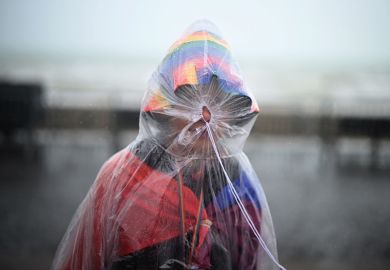Universities may see an increasing demand for arts and humanities degrees in the wake of coronavirus, as young people reassess their values and companies require more empathic and analytical thinking, a university leader has predicted.
David Garza, rector of Monterrey Institute of Technology, said that countries were facing major challenges in areas such as economic growth, productivity, poverty and ageing populations, which may incentivise governments to prioritise science and engineering education. But he said that the complexity of the problems would require “well-rounded leaders” and the type of analytical and creative thinking more associated with arts, humanities and social science degrees.
Speaking at the Times Higher Education virtual Latin America Universities Summit, Professor Garza said there were three key trends that could lead to a rising demand for these non-science fields.
The first was the fourth industrial revolution, which will result in the automation of many technical jobs and the hiring of people who are experts in “creativity and empathy and design”, he said, during a panel on whether the arts, humanities and social sciences will be essential disciplines in the 2020s.
The second factor, according to Professor Garza, was a potential change in attitudes, habits and values of the “Covid generation” of young people who are currently at school and may have “another way of seeing what is really valuable in the world”.
Third, he predicted that there will be a need for stronger leadership to deal with the complex problems that have been exacerbated in the wake of the pandemic. Professor Garza said studies have shown that graduates from humanities and social sciences degrees tend to perform best against a range of leadership skills because of their “ability to see the whole picture”.
“Those three things somehow tell me that actually we might start seeing an increased demand for these fields in the near future,” he said.
Miryam Singer, vice-president for research at the Pontifical Catholic University of Chile, who also spoke on the panel, said that the arts “will be part of the solution” to the pandemic “as much as the…sciences and technology”.
“Now, when people are so in trouble because of lockdown and because of the financial crash, emotions will be the talk of the town,” she said, adding that “the people in the streets will need art” to cope with these feelings.
Professor Singer added that there was a tendency for the arts to “become invisible” in times of need, because other areas were seen as bigger priorities, but she said she was “quite optimistic” that the arts would be important in the post-pandemic world.
“The most important thing about the arts is that they address the spiritual dimension of human beings and I think we will see that societies cannot only be fed on innovation, productivity, entrepreneurship and AI,” she said.
“We [the arts] need to be partners in the healing of the planet and then of the recovery. The first thing to do is to address the arts as a necessity and not a simple decoration.”
Register to continue
Why register?
- Registration is free and only takes a moment
- Once registered, you can read 3 articles a month
- Sign up for our newsletter
Subscribe
Or subscribe for unlimited access to:
- Unlimited access to news, views, insights & reviews
- Digital editions
- Digital access to THE’s university and college rankings analysis
Already registered or a current subscriber? Login








